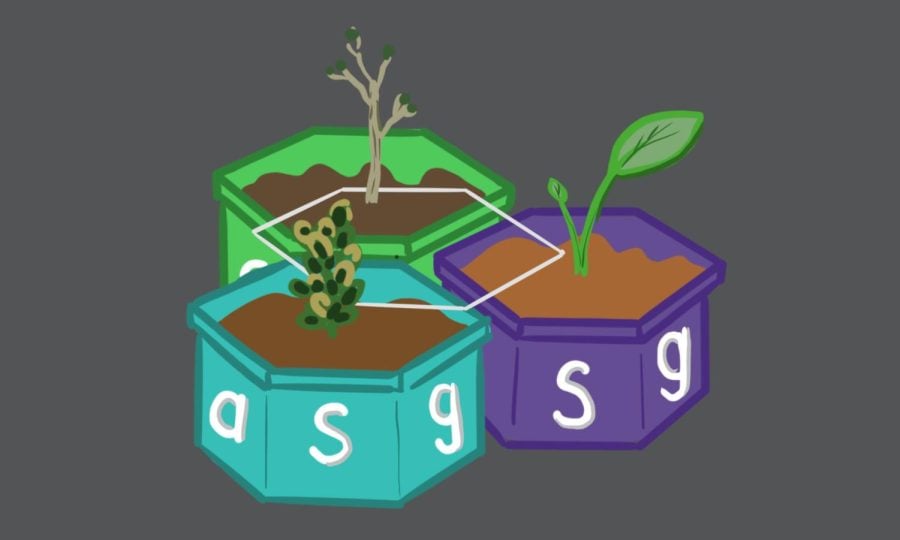ASG Sustainability Committee works toward zero waste football stadium, other eco-friendly initiatives
The ASG Sustainability Committee has five subcommittees and about 50 members. It works on environmental projects around campus.
February 20, 2023
From the football stadium to the dining hall, the Associated Student Government Sustainability Committee promotes environmental efforts at Northwestern and the surrounding community.
With about 50 members, according to Committee co-Chair and Weinberg senior Sadie Bernstein, SusComm is ASG’s largest committee. It has five subcommittees based on different sustainability foci: Resource Management, Green Campus, Food Sustainability, Energy Efficiency and Education, Outreach & Advocacy.
“Our mission is to advance sustainability in all realms, on campus and in our surrounding community,” said Alexis Schwartz, co-chair and Weinberg sophomore. “Most students care about (sustainability), but most students don’t know what to do about that.”
The committee works on projects internally before bringing it to sustainNU and other administration for approval and funding, Bernstein said.
One of the committee’s major initiatives is making Ryan Field zero waste. Bernstein said the project would divert waste from landfills at the football stadium and “has good traction behind it” after getting approval from the Department of Athletics and Recreation.
“We kind of got the green light from them, which is really an important first step,” she said. “We ran a pilot program of our Trash Tacklers initiative at the first football game this year, which was … about having people act as compost, trash and recycling indicators, and that was successful. We learned a lot from it about how we want to run the program.”
According to Schwartz, the committee is working on both the new stadium and the current stadium while it is still in use.
However, Bernstein said future goals — such as only having compostable utensils at the new stadium — are slower and harder to make happen. But, the University has expressed its verbal support.
“I would love for the football stadium to be zero waste,” Bernstein said. “I would love for everywhere on campus to be zero waste.”
SusComm has installed energy-saving outlets in campus buildings and LED lighting in Locy Hall and Fisk Hall. The committee is also working to prioritize native plants and increase vegetarian and vegan options in dining halls.
The project Scwartz said she is most excited about is trying to implement a sustainability overlay in the Weinberg course requirements. This would require all Weinberg students to take a course or two related to sustainability or environmentalism, she said.
The committee collaborates with sustainNU and student groups to “lend each other a hand” and “draw on each others’ experiences,” Schwartz said. According to her, ASG grants $1,000 to a group working toward sustainability each quarter.
ASG SusComm has worked with groups like Cats Who Compost, Wild Roots, Cookology and Engineers for a Sustainable World at NU’s AutoAquaphonics by co-hosting events and supplying funds.
Cats Who Compost, a group supporting students’ composting, recently received $750 in a community-building grant, according to Community Engagement Head and SESP junior Arthur Lebovitz.
Lebovitz said he appreciates collaborating with the committee.
“I’d say it’s pretty important in terms of having (ASG) see us as a priority in terms of implementing compost on campus,” he said. “They can play a role with composting, working with us just to give us more of a platform and more tools, just to (have) more spaces to have more interaction with people.”
Lebovitz said Cats Who Compost will use the recent funding for its Snowstainability Ball this Thursday.
At the beginning of Winter Quarter, University President Michael Schill invited Schwartz and three other committee members to discuss SusComm’s initiatives.
“I’m happy to say he does seem very supportive of them,” she said. “And so we’re excited to see what that partnership looks like moving forward.”
sustainNU has not yet responded to The Daily’s request for comment.
Clarification: This story has been updated to better reflect the sustainability measures the University has expressed verbal support for.
Email: karapeeler2025@u.northwestern.edu
Twitter: @karapeeler
Related Stories:
— Environmental groups, sustainNU seek to expand communication and collaboration
— Students advocate for increased compost bin presence on campus
— Sustainability fellowship program focuses on giving students experiential learning experience



